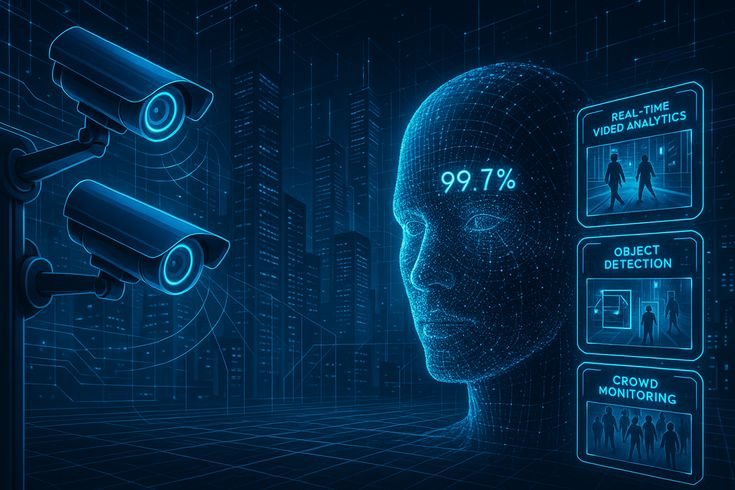Introduction
Back in the day, keeping your computer safe usually meant installing an antivirus and hoping for the best. If you were fancy, maybe you’d run a scan once in a while. But times have changed—hackers today aren’t just tossing random viruses around. They’re using AI Security Tools to write phishing emails that sound like real coworkers, or malware that literally learns how to dodge your defenses.
That’s where AI-powered security tools come in. Instead of waiting for something bad to happen, these systems actually predict and block threats in real time. I’ll never forget the first time my email filter flagged a “fake invoice” that almost fooled me. I sat there thinking, wow, my inbox is officially smarter than I am.
So… What Are AI Security Tools?
Let me keep it simple.
AI (Artificial Intelligence): Software that learns patterns. Like how you normally type, log in, or browse the web.
Security Tools: Apps or systems that protect your accounts, data, or devices.
Put them together and you get digital bodyguards that don’t just follow a checklist—they learn from every trick hackers throw at them.
Examples:
Spotting a phishing email before you even open it.
Catching malware that tries to “shape-shift.”
Warning you when someone logs into your account from a random country at 3 a.m.
Basically, they watch your back online… even when you’re not paying attention.
A Quick Origin Story
Early 2010s: Mostly experimental. Big companies were testing the waters.
Mid-2010s: Players like Darktrace and Cylance brought AI security to the real world.
2020 onward: Cyberattacks spiked during the pandemic, and suddenly, AI tools weren’t just for corporations. Small businesses and even regular users started using them.
I remember when my email provider’s spam filter got an AI upgrade. Overnight, those cheesy “Nigerian prince” scams almost disappeared. It felt like a huge leap forward.
How They Actually Work (Without Geek Speak)
1. Learn what’s normal – When you log in, how you browse, what traffic usually looks like.
2. Spot the weird stuff – Like someone trying to sign in from two countries in the same hour.
3. React instantly – Block the attempt, quarantine a file, or send you an alert.
4. Get smarter over time – Every new trick hackers try makes the system stronger.
No Matrix-style green code required—it’s just pattern-watching at scale.
Why People Like These Tools
They catch threats faster than humans can.
Fewer false alarms (old-school antivirus used to cry wolf constantly).
They don’t need sleep—protection runs 24/7.
Its adapt as hackers adapt.
They get personal: defenses are tailored to you.
Think of it as a guard dog that knows your house layout—so it only barks when it really matters.

The Downsides (Because Nothing’s Perfect)
False Positives: Sometimes it flags something safe as dangerous (annoying, but better than the reverse).
Privacy Concerns: AI learns by looking at your data. That raises obvious questions about who else can see that info.
Cost: Advanced systems aren’t cheap.
Learning Curve: Not everyone knows how to set them up.
The Arms Race: Hackers are also using AI.
A friend of mine once had their VPN blocked by an AI firewall because it thought the connection was “suspicious.” Helpful? Kind of. Frustrating? Absolutely.
Popular AI Security Tools
Darktrace – Works like an “immune system” for networks.
CrowdStrike Falcon – Protects devices with AI-driven detection.
CylancePROTECT – Predictive malware defense.
Microsoft Defender (AI-powered now) – Way smarter than the clunky old Windows antivirus.
AI Email Filters – Google and Microsoft use these daily to catch phishing attempts.
These are basically the Avengers of cybersecurity.

What’s Next?
Security that’s hyper-personalized to your digital fingerprint.
Full-on AI vs. AI battles—hackers use it, defenders counter it.
Systems that react instantly, even before you notice an alert.
AI watching over your smart home, car, even your smartwatch.
Human experts + AI tools working side by side.
Pretty soon, relying only on antivirus will sound about as old-school as dial-up internet.
Quick FAQ
Q: Do individuals really need AI security tools?
Yes—even free email filters already protect you.
Q: Are they flawless?
Nope. But they’re far better than static defenses.
Q: Can hackers beat AI?
Sometimes. But the AI learns quickly.
Q: Are these only for companies?
Not anymore. Many tools are built right into everyday apps.


3 thoughts on “AI Security Tools: Your Digital Bodyguards”